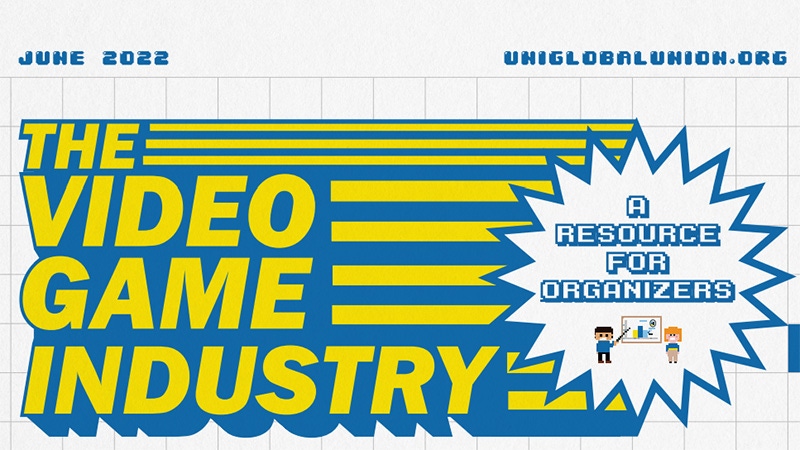Trending
Opinion: How will Project 2025 impact game developers?
The Heritage Foundation's manifesto for the possible next administration could do great harm to many, including large portions of the game development community.
A new survey from Uni Global Union indicates that low pay and excessive hours are driving interest in unionization among game developers.

A new report from global labor organization Uni Global Union indicates that over half of game developers say they are underpaid.
In the report produced by the Switzerland-headquartered organization, that datapoint is one of several that are apparently driving increased developer interest in unionization. This a global survey, with different regions reporting different sentiments from developers.
Globally, over 66 percent of developers say that "low pay" is one of their top workplace issues. In Europe, 77 percent of developers reported being underpaid.
This issue is apparently exacerbated at mobile game studios (where 73 percent of developers say they aren't being paid enough), and localization companies (where a whopping 94 percent of workers identified low pay as an issue).
This and other issues have apparently driven 79 percent of developers to say that they would "definitely" or "somewhat" support a union.
15 percent said they would neither support or oppose a union, while 6 percent outright opposed unionization. For comparison, 55 percent of respondents to the State of the Industry survey conducted by Game Developers Conference (our sibling organization) said that the video game industry should unionize.
Though only 35 percent of respondents to Uni Global Union's survey indicated that gender discrimination or sexual harassment was a workplace issue, 46 percent of women and 43 percent of nonbinary developers reported gender discrimination as still being a problem.
Additionally, 24 percent of women and 23 percent of nonbinary respondents reported sexual harassment as an issue at their workplaces.
Both statistics rose among respondents who work at triple-A game studios, particularly for women responding to the survey. Among women working at triple-A companies, 59 percent said that gender discrimination was an issue, and 40 percent of women said sexual harassment was a problem in their workplaces.
Uni Global Union's survey results only show that 17 percent of developers identified racial discrimination as an issue, but a closer examination of the data shows a major gap between white and non-white respondents.
While only 17 percent of white game developers identified racial discrimination as a workplace issue, 28 percent of non-white participants did so.
It's interesting to see reports of racial discrimination trend so low compared to reports of gender discrimination, but the gap between the two groups of respondents stands out. It reinforces the notion that developers may not be aware of the discrimination issues that their colleagues face.
Picking apart Uni Global Union's data is interesting because there are nuances to how different game developers in different parts of the world experience these issues. But despite regional differences, it does appear that game developers everywhere are likely to be underpaid and overworked.
The organization recommends legislative intervention on company mergers, the deployment of non-disclosure and non-compete agreements, increasing access to employment rights for contractors, and regulating crediting practice to prevent punitive action.
It also of course, is in favor of developers pushing for union representation. This report has arrived in advance of a small conference the group is holding in Berlin, Germany to discuss unionization around the globe. "Video games workers are coming to Berlin to deliver a strong message to the titans of the sector," said UNI Global Union General Secretary Christy Hoffman. "It’s time to fight for our rights—we are going union."
You May Also Like